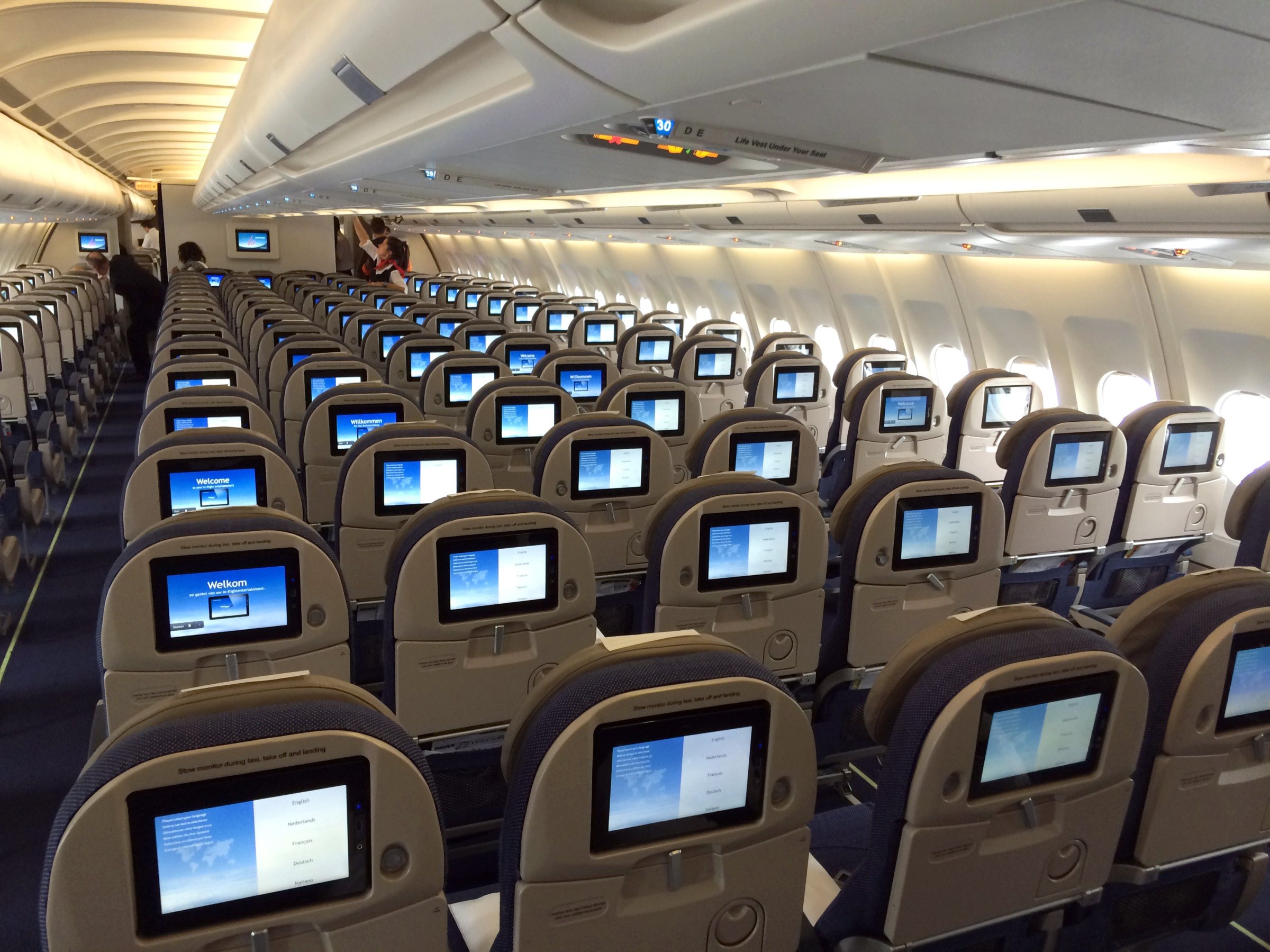
A few days ago I was about to board a flight from Beijing to Moscow and I called my mother in New Jersey to tell her I was going on the road. “Be very careful!” she exclaimed, with more angst in her voice than usual. I told her that even though relations between the U.S. and Russia were strained that I’d be perfectly fine in Moscow. But that’s not what she was worried about. “Be careful of Ebola!” she said.
I was, of course, traveling nowhere near any Ebola-hit region — the disease has so far been generally confined to far-off West Africa. Her fear, though, is very real, and to a certain extent, rational. When an epidemic of a disease as deadly as Ebola infects the world’s headlines, it is only natural for people to consider curtailing their travel and other usually normal activities in an attempt to avoid the virus. As the disease spreads, people will become more likely to postpone business trips or cancel family vacations.
And that ultimately could have serious economic consequences. Nothing of course is more tragic than the human cost of the Ebola outbreak. But as the crisis persists, economists are beginning to look at what the toll might be for the global economy as well. In a world still climbing out of the financial meltdown of six years ago, we can hardly afford any new disruptions to investment and consumer spending that could further drag down growth.
That, however, is exactly what a sustained Ebola epidemic could do. We can get a pretty good idea of what can happen from looking at the impact of SARS in East Asia in 2003. Wherever the disease went, people stopped doing what they would normally do, in order to protect themselves, and that had an immediate effect on demand. Restaurants that would usually be jam-packed in central Hong Kong appeared abandoned; flights almost always crammed took off nearly empty; hotels emptied. Though the overall economic damage from SARS was in the end minimal, since it was contained relatively quickly, if the disease had spread more widely or become more entrenched, the cost would have risen precipitously.
We can already see that happening in West Africa. A recent World Bank study estimated that if the epidemic is not contained quickly, it would cost Liberia 12% of its GDP by the end of 2015, and Sierra Leone 8.9% — a loss these poor nations can ill afford. If the outbreak spreads more widely to neighboring countries with larger populations and economies, the World Bank figures the two-year financial cost could reach $32.6 billion. Travel to the region has already plummeted. John Grant, executive vice president of aviation-information provider OAG, recently calculated that the number of scheduled flights out of the worst-hit countries have dropped by 64% since May. Major carriers including British Airways and Delta Air Lines have suspended flights. The president of Dubai-based Emirates noted that the Ebola outbreak has dampened demand in Asia for flights to Africa.
What makes these losses even more unfortunate is that Africa has been in the middle of a major economic revival. For much of the past half-century, poor governance, bad policy and recurring conflict kept Africa on the sidelines of a major surge in growth and wealth throughout much of the developing world, especially in Asia. But in recent years Africa has finally joined the growth party. The International Monetary Fund expects the GDP of sub-Saharan Africa to jump 5.1% in 2014 — faster than any other region of the developing world except for emerging Asia. For now, the IMF sees the impact of Ebola on Africa overall as limited. But if the disease spreads, it could derail what was becoming one of the most encouraging stories in the emerging world.
From a purely economic standpoint, the fact that the countries with the most severe Ebola outbreaks (Liberia, Sierra Leone and Guinea) are small and play a relatively minor role in world trade has minimized the impact the disease has had on the global economy. That, however, would change dramatically if Ebola spreads to larger economies that are more integrated into global finance and manufacturing. Imagine the chaos that could ensue if the empty restaurants and airplanes experienced in the SARS outbreak are repeated in New York City or London for any significant period of time and you’ll get an inkling of the damage Ebola could inflict on the world economy. That’s why the Ebola deaths recorded in the U.S. and Spain are of great economic significance.
“A sustained outbreak of a high mortality disease like Ebola in any large or important economy in the global supply chain would imply significantly larger impact than SARS caused,” Barclays analyst Marvin Barth wrote in a recent report. Such a situation, he added, “remains a tail risk, but has jumped in probability to one that can no longer be ignored.”
Predicting where Ebola might spread and how long the outbreak could last is, of course, impossible, and so is gauging its potential economic impact. What is clear, however, is that containing the disease is not just a humanitarian necessity but an economic imperative.
More Must-Reads from TIME
- Inside Elon Musk’s War on Washington
- Meet the 2025 Women of the Year
- The Harsh Truth About Disability Inclusion
- Why Do More Young Adults Have Cancer?
- Colman Domingo Leads With Radical Love
- How to Get Better at Doing Things Alone
- Cecily Strong on Goober the Clown
- Column: The Rise of America’s Broligarchy
Contact us at letters@time.com